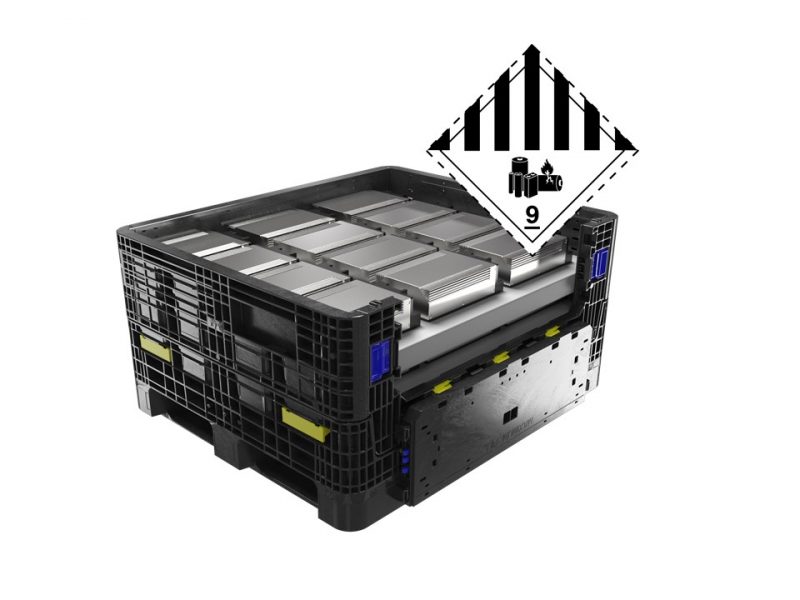New Survey Reveals French Consumers are Ready for Compostable Packaging
While the circular economy law enters the final stage, that the European Commission is soon…

That is why ORBIS Europe, manufacturer of reusable plastic packaging solutions, has developed UN-certified containers for different types of lithium-ion batteries. The durable containers comply with current regulations and can be customised to meet individual customer requirements.
According to international transport law, batteries containing lithium are classified as class 9 dangerous goods. From raw materials to recycling, the batteries go through different phases: battery cells turn into modules and modules turn into packs. When falling below a specific capacity limit, the batteries are returned for recycling or used in energy storage systems. Transporting the different types of batteries requires specific kinds of packaging solutions that meet different standards.
Today, ORBIS Europe offers plastic packaging solutions that cover almost the entire life cycle of a lithium-ion battery. A standard 600 x 400 mm box is suitable for smaller amounts of cells and prototypes that are transported for certification purposes. For production-ready cells, battery modules and smaller battery packs, the IonPak® dangerous goods container is used. The customer-specific packaging solution consists of a robust foldable large container (FLC) with European standard footprints (1200 x 800 // 1200 x 1000 mm) and an inner packaging solution. The dunnage is adapted to fit the individual battery to comply with dangerous goods guidelines. After successful completion of additional tests, the plastic FLC can also be used to transport damaged, non-hazardous batteries.
The EU commission has just recently increased its climate goals. Instead of 40%, a reduction of CO2 emissions by 55% (compared to 1190) is now required. “We are all challenged to reduce our negative impact on the environment”, says Jürgen Krahé, Senior Commercial Director at ORBIS Europe. The automotive industry is one example. The goal of electrifying vehicles is to reduce CO2 emissions. But when compared to vehicles with combustions engines, the production of electric vehicles emits up to 150% more CO2 according to a Fraunhofer Institute research. That is why companies need to cut down CO2 in other parts of the value chain, e.g. in packaging. “Still today, the majority of packaging used is disposable“, says Krahé. According to an internal calculation, the waste of the one-way packaging used could fill an entire soccer stadium twice a year.
Environmental protection is not the only reason to switch from one-way to reusable packaging, explains Krahé: “It can also significantly save costs in the long term.”
Krahé and his team also thought about how the industry will evolve in the upcoming years. They forecast not only an increased battery demand, but also an exponential increase in return rates of obsolete batteries. “Besides lithium, other materials could gain in importance, such as fluoride or phosphor”, predicts Krahé. In order to respond to the new developments, ORBIS Europe works on new load carriers, optimised inner packaging, optimised processes, automation and load carriers for the return transport of damaged batteries. “At ORBIS Europe, we will face the upcoming challenges. Our innovation pipeline is filled to the brim”, says Krahé.
For more information go to www.orbiseurope.eu